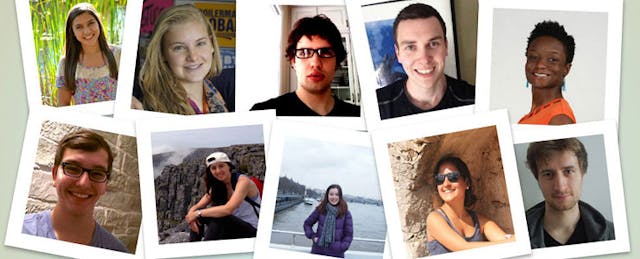One UnSchooler begets another. At least that's what it looks like as one of Peter Thiel's star dropouts is offering an opportunity for others to also go off the traditional education track and educate themselves.
Dale Stephens, part of the first class of Thiel 20 Under 20 Fellows, founded UnCollege.org in 2011 as an online resource and community to help dissatisfied students with self-directed learning. This week, Stephens is coalescing this goal into an official fellowship program, the Gap Year Program, to help other motivated dropouts to embark on their own self-learning journey.
A big part of the program is to instill confidence and street smarts in students who may be daunted by the task of taking complete ownership of their education for the very first time. "Some of the things we're doing in the Gap Year Program would have been helpful for me as I was doing the Thiel Fellowship--particularly learning how to stay motivated and committed," says Stephens in an interview with EdSurge.
Stephens says the design of the Gap Year program was based on research he conducted for his recent book, Hacking Your Education. (Here's our review.) In the book, Stephens offers anecdotes of how he and others like him ditched the classroom in favor of living abroad, working at startups, and getting hands-on learning from other real world experiences.
These ideas are reflected in the curriculum of the one-year program, which is broken down into four phases, each lasting three months:
- In the first phase, all Fellows will live together in a communal house in San Francisco to "learn how to learn." Stephens says they'll build both "inward-facing skills" like how to communicate, persevere and stay motivated, and "outward-facing skills" like building connections and developing one's personal brand.
- In the second phase, Fellows go abroad and learn how to adapt to a different culture. Stephens explains, "It's all about getting folks to get outside of their comfort zone, to a place where they don't speak the local language and living in an environment that's the complete opposite from their upbringing."
- During the third phase, the Fellows will get an internship to get a taste of the working world. "There's a lot of frustration among people in the hiring world. One of the complaints I hear a lot is that 'college kids need to be told what to do, have their hands held and be given gold stars. Why can't we find people who are self-motivated and can find their own resources to get the job done?'"
- In the final phase, the Fellows will be tasked with "creating a project with real-world value." These projects can take any shape or form, from apps, books and Kickstarter campaigns to building an actual company.
The ten Fellows in the first class range from ages 18 to 26 and hail from countries like Germany, Switzerland and Colombia. They were selected from an applicant pool of 200. "We looked for signals that suggest they can be autonomous and self-directed," says Stephens. "Speaking foreign languages, starting independent projects, traveling extensively--these suggest to us a good fit for the program."
Hacking your education doesn't come cheap. The one-year program costs $13,000 which covers the first three months of housing in San Francisco and travel and housing stipends for living abroad. Living expenses in the second half of program are not covered.
Stephens is hesitant to offer any quantifiable metrics for gauging the success of his program. "We want to see if we can get people to a place where they are financially and emotionally independent. Most of these are 18-19 year olds living away from home the first time. Some will go to college afterward, but we want to give them the skills to be effective lifelong learners whether or not they want to return to school."


